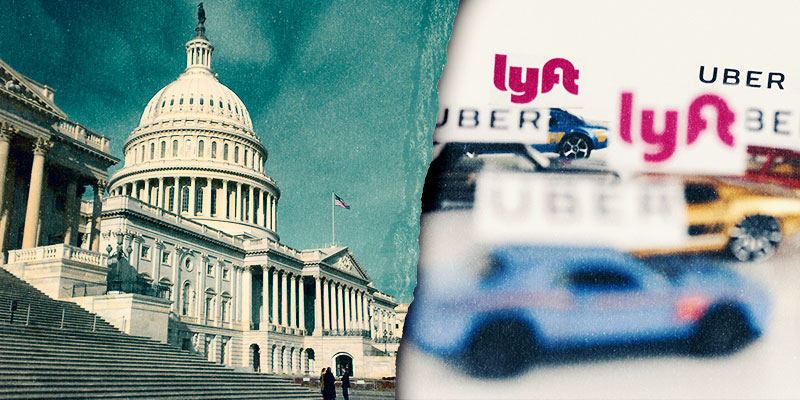A 2019 California law reclassified drivers for ridesharing companies Uber and Lyft as employees instead of contractors. California voters overturned this law via referendum in November 2020. Congress is now considering imposing similar definitions on the entire country.
At issue is the classification of workers as either employees or as independent contractors. Economists focus on decision rights, or who gets to make decisions, when analyzing how we organize economic activity. While employment is generally longer-term (an employee knows to continue showing up), decision-making is also involved. Bosses make decisions about the use of an employee’s skills and time; contractors do a specified task for a price.
The legal distinction between employee and contractor reflects this. According to IRS rules, a business decides what, when, and how an employee does. Contractors decide how and when they do tasks.
The federal and state governments heavily regulate the employer-employee relationship. Employees must be paid the minimum wage and overtime pay and receive unemployment and worker’s compensation; large employers must offer health insurance.
Political mandates give businesses an incentive to classify workers as contractors. Mandates are particularly burdensome for low paying jobs; health insurance is a significant add-on benefit for workers making $12/hour.
California legislators claimed that Uber and Lyft classified drivers as contractors to profit from paying them less. This is wrong on the facts and the theory. On the facts, it ignores Uber’s notorious losses.
On the theory side, work done by employees or contractors is voluntary. Businesses can pay up to the value created by workers; competition for workers then drives pay up to this level. Competition applies regardless of legal classification. Uber cannot make anyone drive for them or keep someone from driving for Lyft instead. Contractors simply receive more compensation in cash rather than politically mandated benefits.
Contracting gives workers more freedom than employment. By writing for numerous magazines or websites, freelancers can choose topics better than as an employee of one publication. And contractors do not have to follow a boss’s orders.
Contractor-drivers for Uber and Lyft choose when and how many hours to work. Drivers get paid by the ride, or gig, not for waiting for a trip. Yes, some people drive 40 or more hours per week for Uber and resemble employees. But driving full time is still their choice.
Employment arguably was the 20th Century way to organize work. Factories, mines, hotels and newspapers operated from fixed locations for decades. Businesses valued long-term commitments with workers. Future jobs will arguably be more fleeting, in part because artificial intelligence and robotics will automate tasks done repeatedly by thousands of workers.
The tasks needed by businesses will more frequently be short term gigs, which explains references to a “gig economy.” Adopting to change requires flexibility, which employees saddled with mandates do not offer.
The pandemic further demonstrates the value of flexibility. Many retailers and restaurants pivoted to delivery, relying on businesses like Instacart and DoorDash. The flexibility offered by contractors benefits us all.
Why do politicians want to preserve employment? Public choice theory offers an explanation. Politicians gain support by giving things to people and lose support by making others pay for these goodies. Contracts spanning several dimensions, like employment, help politicians maximize support. Employment involves many items, including salary, fringe benefits and shift flexibility. Businesses care about the total cost, not the components. When politicians mandate a new benefit, businesses can cut back on other margins.
Politicians then claim credit for “giving” workers the mandated benefit. Businesses save on other margins and do not vehemently oppose the mandate. Workers who end up with less flexible hours or go without a raise may not connect this to the new benefit.
I find it telling that politicians in California or Congress do not respond to the hiring of contractors by reducing their mandates for employees. Regardless of whether employment is still the best way to structure work, politicians do not want to lose the opportunity to give workers “gifts” at no cost to themselves.
Daniel Sutter is the Charles G. Koch Professor of Economics with the Manuel H. Johnson Center for Political Economy at Troy University and host of Econversations on TrojanVision. The opinions expressed in this column are the author’s and do not necessarily reflect the views of Troy University.













